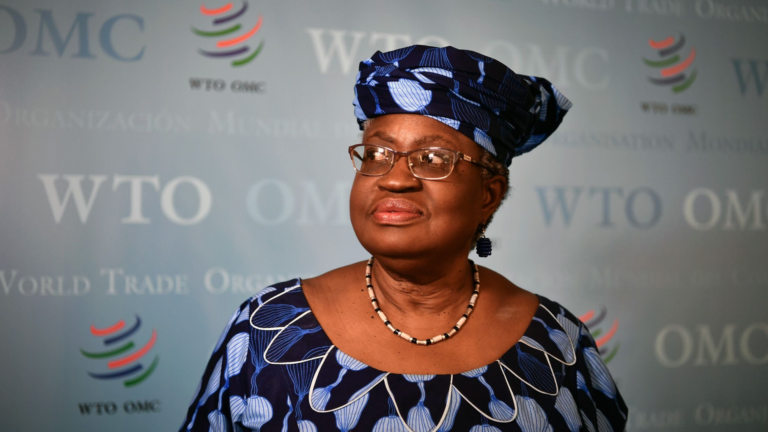Amid escalating global trade tensions and the threat of economic fragmentation, World Trade Organization (WTO) Director-General Ngozi Okonjo-Iweala has issued a strong warning to world leaders, urging collaboration and urgent reforms to prevent a potential economic catastrophe.
Speaking at the World Economic Forum in Davos, Switzerland, Okonjo-Iweala called on policymakers to “just chill” and carefully consider the long-term impacts of retaliatory trade measures. Her remarks came as the forum focused on trade uncertainties and economic resilience.
At an informal ministerial meeting hosted by Switzerland, global ministers reaffirmed their “strong support” for the WTO, emphasizing its crucial role in maintaining a transparent, rules-based global trading system.
In the session titled ‘Finding Growth in Uncertain Times’, Okonjo-Iweala emphasized that despite recent global challenges, trade remains a vital source of growth. She pointed to WTO research forecasting double-digit trade growth if artificial intelligence (AI) technologies are widely adopted, citing AI’s potential to reduce trade costs and increase productivity.
However, she also painted a concerning picture of the risks posed by economic fragmentation, warning that dividing the world into competing trade blocs could shrink global GDP by 6.4 percent—equivalent to losing the combined economies of Japan and South Korea.
“This is a path we cannot afford to take,” Okonjo-Iweala stressed.
In a session on the intersection of trade and the green economy, she underscored the importance of trade in supporting sustainable economic growth. Okonjo-Iweala also highlighted the dangers of escalating tariff wars, particularly as the U.S. considers new tariffs. “Tariffs may seem like an easy fix, but history shows us the consequences,” she cautioned.
Drawing parallels to the 1930s, when retaliatory tariffs exacerbated the Great Depression, she warned that a cycle of trade retaliation could lead to global GDP losses in the double digits, with the most severe impact on poorer nations.
Concluding her participation, Okonjo-Iweala attended a ministerial meeting on WTO reforms, stressing the need for modernization ahead of the 14th WTO Ministerial Conference in 2026. “The global context is shifting; we must adapt and modernize to meet these challenges,” she urged.
Ministers echoed her call for reform, reaffirming the WTO’s pivotal role in ensuring a fair and predictable trading system.
Okonjo-Iweala’s message in Davos was clear: global trade cooperation, innovation, and reform are essential to avoid economic disaster.

